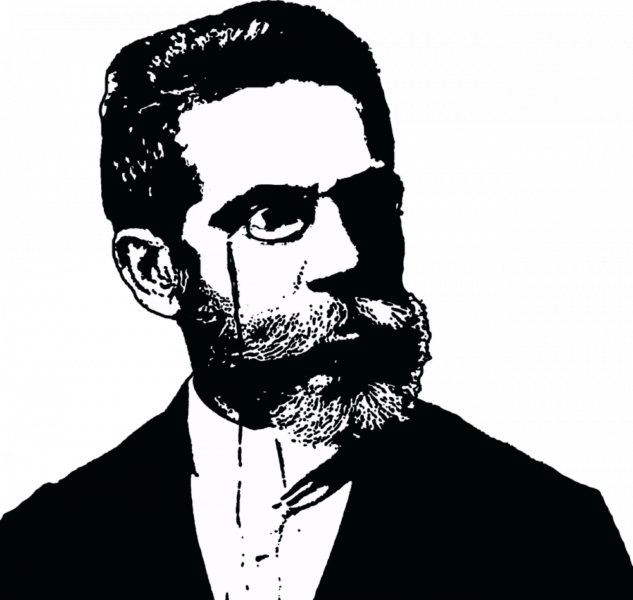Homers Iliad: A Haunting Epic of Heroism, Tragedy, and Mythology

Introduction to Homer’s Iliad
The Iliad, attributed to the ancient Greek poet Homer, is perhaps one of the most renowned and celebrated works of literature in human history. This epic poem, composed around the 8th century BCE, carries profound significance that continues to captivate the minds of readers, scholars, and artists across the globe. From its narrative of the Trojan War to the exploration of human nature, the Iliad remains a timeless masterpiece that delves into the complexities of heroism, tragedy, and mythology.
The Historical Evolution of the Iliad

Over the centuries, the Iliad has undergone several transformations and adaptations, leaving an indelible mark on the world of literature and art. During antiquity, the Iliad was recited orally, as it was part of a rich oral tradition in ancient Greece. Its poetic nature, accompanied by rhythmic storytelling, allowed for easy memorization and transmission of the epic’s verses from one generation to another.
During the Hellenistic period, the Iliad also found its way into written form, which ensured its preservation and wider dissemination. The existence of multiple ancient Greek manuscripts attests to the Iliad’s popularity during this time, as the poem became an integral part of literary education and a prominent cultural reference.
However, it was during the Renaissance period that the Iliad experienced a resurgence of interest and brought forth new interpretations. Renowned scholars such as Leonardo da Vinci and Niccolò Machiavelli were captivated by the Iliad’s exploration of human nature and the complexities of war. Their fascination led to translations and commentaries that shed new light on the poem’s themes and inspirations.
In the modern era, the Iliad continues to influence and inspire various art forms, from literature to visual arts and even film adaptations. Its profound exploration of the human condition, honor, and the inevitable clash between mortals and gods continues to resonate with audiences worldwide. Artists, writers, and filmmakers have reimagined the Iliad’s characters and narratives, breathing new life into this ancient masterpiece.
Key Themes and Significance of the Iliad
The Iliad revolves around the Trojan War, specifically focusing on the tragic hero Achilles and his wrath that engulfs the Greek camp. While the war serves as the backdrop, the poem delves deeply into themes of mortality, honor, fate, and the merciless intervention of the gods in human affairs.
In the Iliad, Homer questions the nature of heroism and explores the complex emotions that drive mortal beings in times of conflict. The character of Achilles serves as the embodiment of heroism but also exposes the flaws of human pride and the devastating consequences it can entail. The reader witnesses Achilles’ inner struggles, his yearning for glory, and his eventual realization of the importance of compassion and humanity.
Through its exploration of the gods’ interference in human affairs, the Iliad invites contemplation on the delicate relationship between mortals and the divine. The constant interventions by Greek deities highlight the belief in a higher power and the concept of fate, which influences the course of human lives. This interplay between gods and mortals creates a rich tapestry of mythology and offers profound insights into human existence.
Impact on Art and Culture
The Iliad’s enduring impact on art and culture is undeniable. Its iconic characters, such as Achilles, Hector, Helen of Troy, and Odysseus, have inspired countless artists, sculptors, and playwrights throughout history. Paintings, sculptures, and dramatic performances have been created to depict the epic’s vivid imagery and explore its thematic depth.
From Renaissance to Romanticism, the Iliad has served as a source of inspiration for countless artistic movements. It has inspired renowned painters like Jacques-Louis David, who captured the tragic heroism of characters like Hector in his masterpieces. The Iliad’s influence also extends into modern literature, as countless authors have drawn inspiration from its themes and narratives, creating their own interpretations of the Trojan War.
Furthermore, the Iliad’s enduring relevance is evident in contemporary pop culture. Hollywood has embraced the epic’s timeless appeal, producing films like Troy, which brought the Trojan War to the big screen, captivating a new generation of audiences.
Conclusion
In conclusion, Homer’s Iliad stands as a monumental work of art that has enraptured audiences throughout history. Its exploration of heroism, tragedy, and mythology provides invaluable insights into the human condition and has left an indelible mark on art and culture across the ages. From the oral traditions of ancient Greece to its continued influence on contemporary literature and film, the Iliad remains an extraordinary testament to the power of storytelling and the enduring relevance of ancient myths.
*Bulletpoints for featured snippet potential:
– Introduction to Homer’s Iliad: A haunting epic of heroism, tragedy, and mythology.
– The historical evolution of the Iliad: From oral transmission to written manuscripts.
– Key themes and significance of the Iliad: Exploring mortality, honor, fate, and the gods’ intervention.
– Impact on art and culture: Inspiring painters, sculptors, writers, and filmmakers throughout history.
– Conclusion: The Iliad’s enduring relevance and its profound insights into the human condition.
FAQ
What is the Iliad?
How has the Iliad evolved over time?
What is the significance of the Iliad in art and culture?
Flere Nyheder
Erhvervsfotograf: Nøglen til professionelle virksomhedsbilleder
Introduction to Homer’s Iliad The Iliad, attributed to the ancient Greek poet Homer, is perhaps one of the most renowned and celebrated works of literature in human history. This epic poem, composed around the 8th century BCE, carries profound ...
Linnea Jensen
08 februar 2024
Plakater til mor: Den perfekte gave til ære og glæde
Introduction to Homer’s Iliad The Iliad, attributed to the ancient Greek poet Homer, is perhaps one of the most renowned and celebrated works of literature in human history. This epic poem, composed around the 8th century BCE, carries profound ...
Linnea Jensen
22 januar 2024
Klaus Rifbjerg Bøger – En Dybdegående Indblik i Enestående Litteratur
Introduction to Homer’s Iliad The Iliad, attributed to the ancient Greek poet Homer, is perhaps one of the most renowned and celebrated works of literature in human history. This epic poem, composed around the 8th century BCE, carries profound ...
Peter Mortensen
18 januar 2024
Peter Høeg bøger: En fascinerende verden af intellektuelle mysterier og dybde
Introduction to Homer’s Iliad The Iliad, attributed to the ancient Greek poet Homer, is perhaps one of the most renowned and celebrated works of literature in human history. This epic poem, composed around the 8th century BCE, carries profound ...
Peter Mortensen
18 januar 2024











